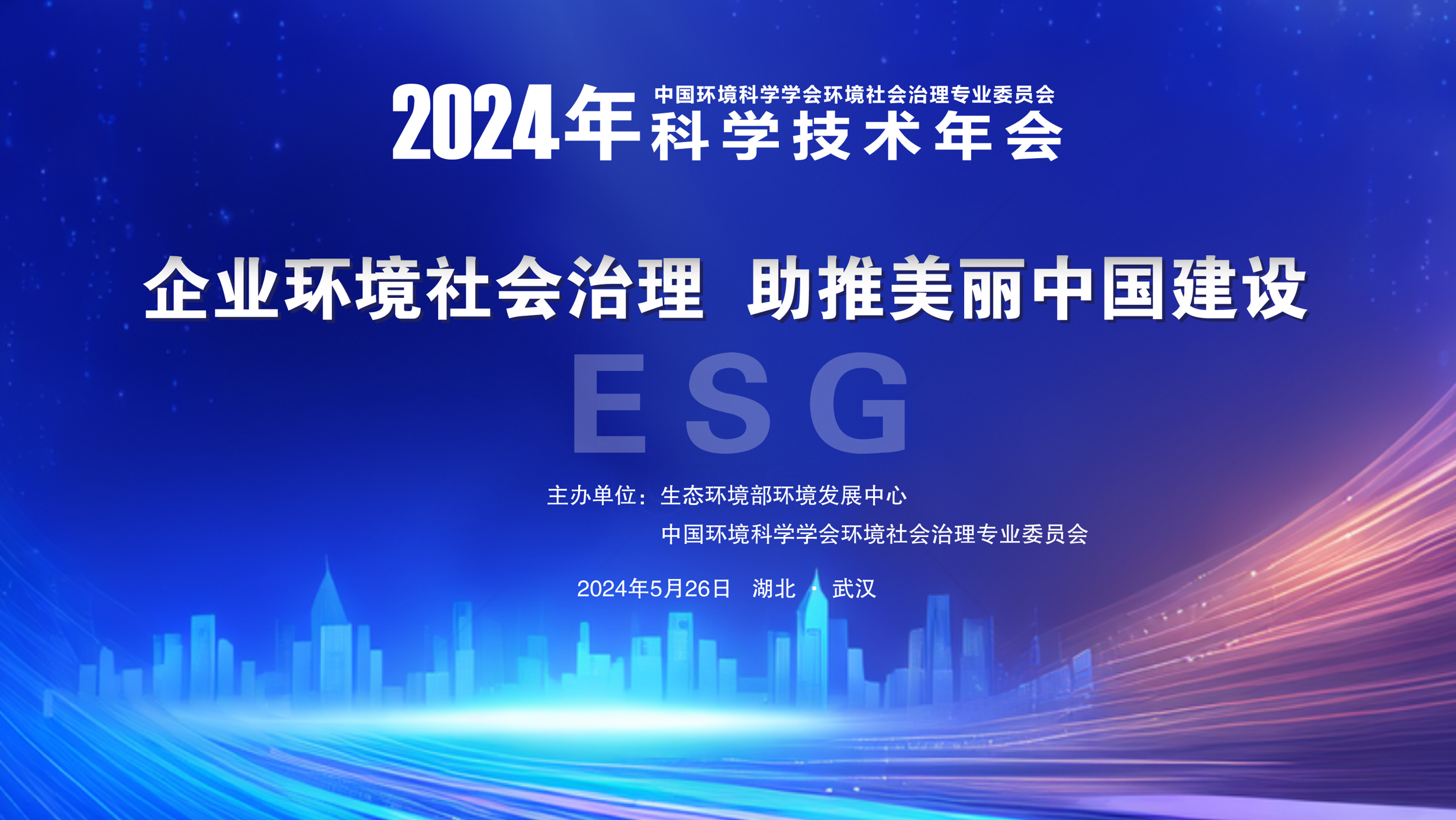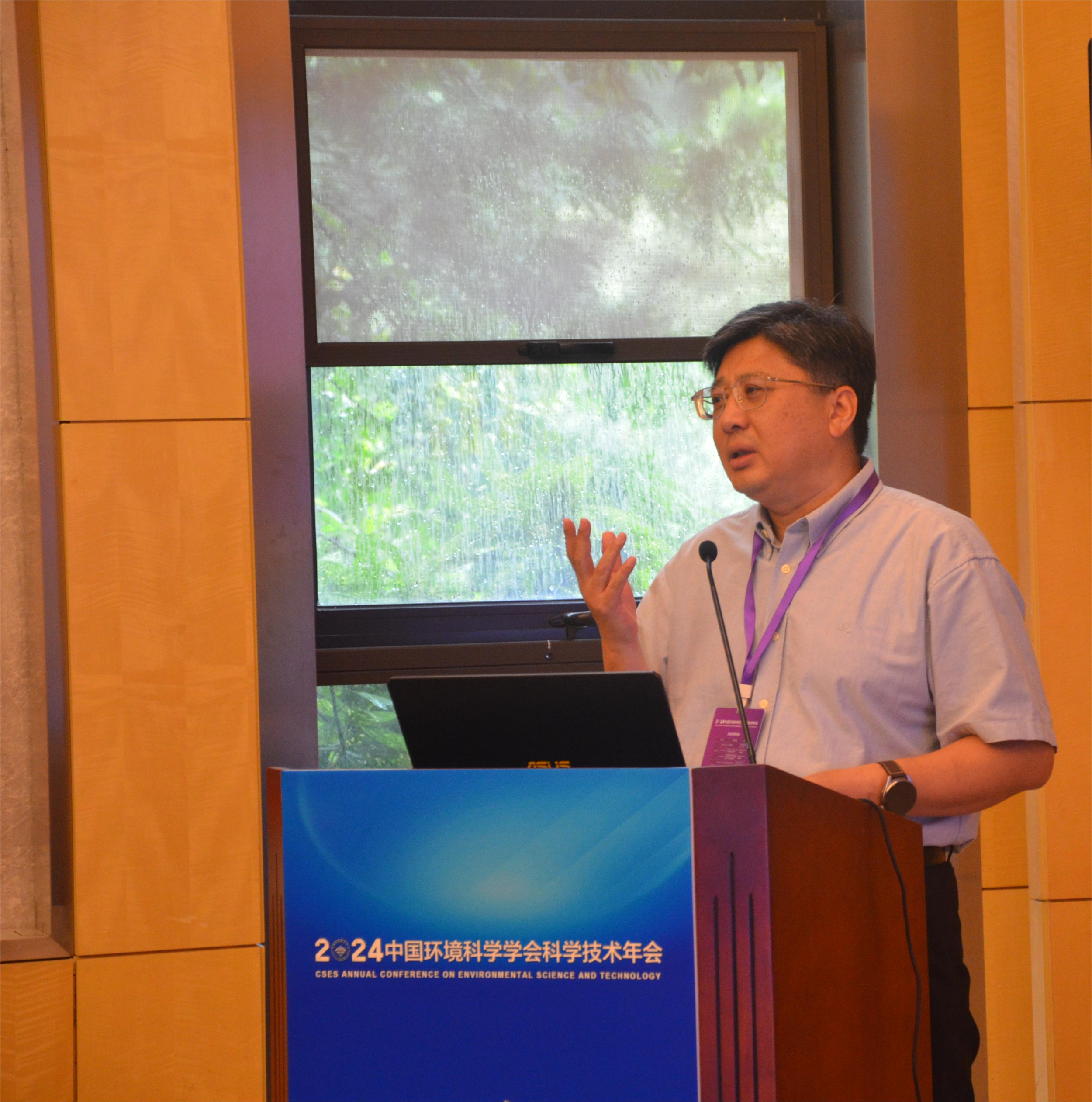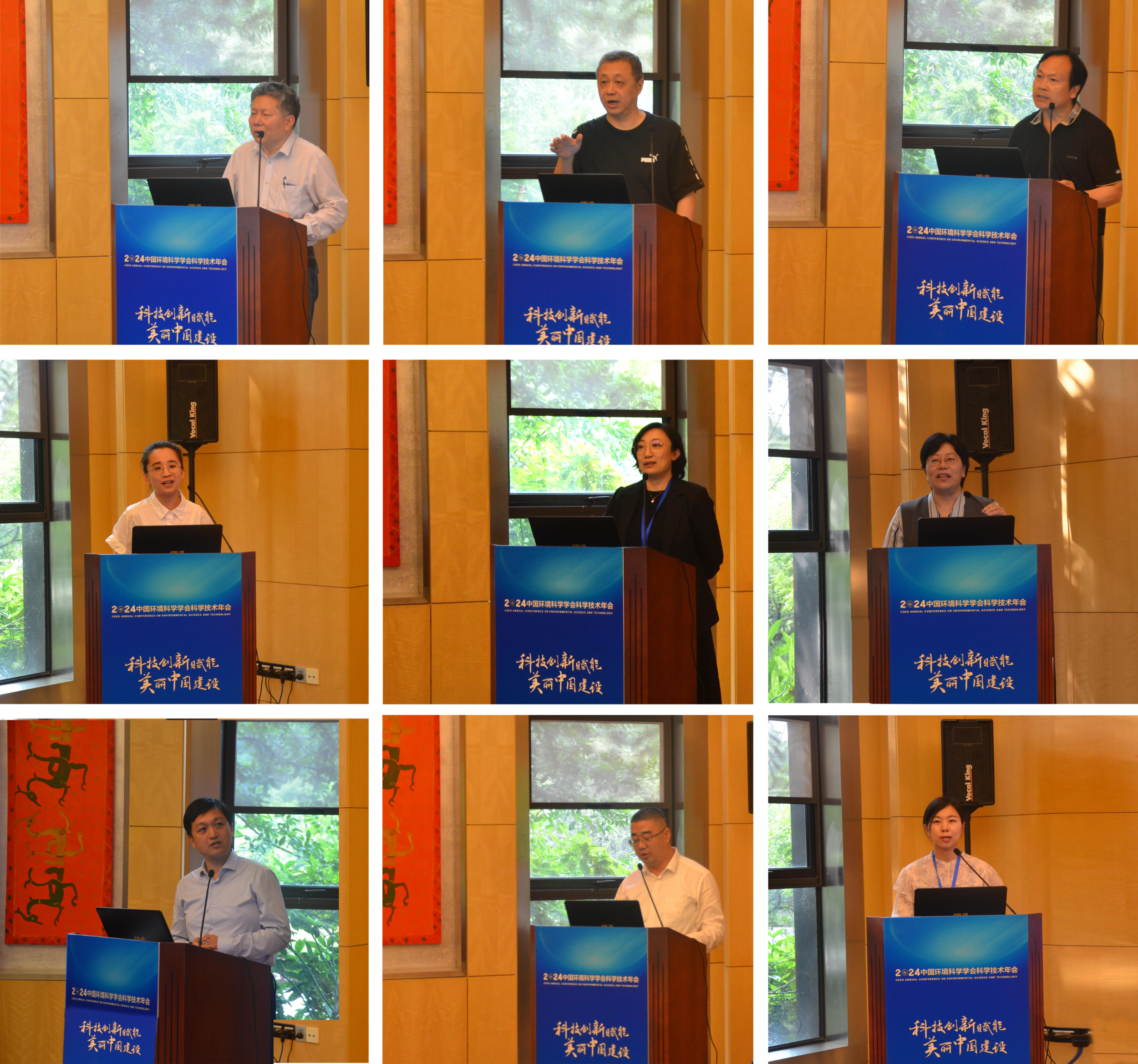Practicing ESG Concepts and Promoting the Construction of a Beautiful China The 2024 Academic Annual Meeting of the Environmental and Social Governance Professional Committee was held
On May 26, the 2024 Academic Annual Meeting of the Environmental and Social Governance Committee of the Chinese Society for Environmental Sciences was held in Wuhan.

At present, China's economic and social development has entered a stage of high-quality development to accelerate green and low-carbonization, and practicing the concept of ESG (Environment, Society and Governance) is of great practical significance to promote the green and low-carbon transformation of enterprises, cultivate new momentum for green development, and promote the construction of a beautiful China.
The theme of the annual meeting of the special committee is "Corporate Environmental and Social Governance to Promote the Construction of Beautiful China". Chen Ming, Chairman of the Special Committee, Secretary of the Party Committee and Director of the Environmental Development Center of the Ministry of Ecology and Environment, said: "The value core of economic prosperity, environmental sustainability, and social equity advocated by ESG is highly consistent with China's strategic tasks such as high-quality development, achieving the "dual carbon" goal, and developing new quality productivity. It is hoped that with the help of ESG concepts, we will accelerate the realization of green and low-carbon high-quality development of enterprises, so as to enhance the endogenous power and innovation vitality of the construction of a beautiful China. ”

Why should businesses care about climate change? Ma Aimin, former deputy director of the National Center for Climate Change Strategy and International Cooperation, gave a good explanation. He said that in the context of climate change, enterprises should assume the responsibility of controlling greenhouse gas emissions, formulate low-carbon development strategies in their own development process, analyze the situation and difficulties they face, actively respond to challenges, seek development opportunities, clarify the goals and tasks in controlling greenhouse gas emissions, and put forward suggestions for further improving the current ESG carbon-related information disclosure, hoping to further strengthen the constraints and supervision of information disclosure, so that information disclosure can truly play a role in promoting social supervision.
Zhang Zhongxiang, Distinguished Professor of Tianjin University and Founding Dean of Ma Yinchu School of Economics, made suggestions for promoting the construction of a national carbon market in his report "China's National Carbon Market: Development, Assessment and Prospects". He believes that during the 14th Five-Year Plan period, priority should be given to including alumina, cement and steel in the national carbon market. These three industries account for about 30% of the country's total carbon emissions, plus the power industry accounts for about 45%, so that about 75% of the country's total carbon emissions during the "14th Five-Year Plan" period will be included in the national carbon market, and strive to cover the "15th Five-Year Plan" before the end of the national carbon market power generation, petrochemicals, chemicals, building materials, steel, non-ferrous metals, papermaking and domestic civil aviation and other eight high-energy consumption industries. After the expansion of the carbon trading system includes 3-4 industries, consider introducing individual and institutional investors and financial institutions to enter the market for trading, and then gradually increase the variety of transactions, accelerate product and service innovation, and help improve market liquidity.
"The carbon neutrality action of enterprises is gradually going deeper, but it is still necessary to further deepen the practice of ESG concepts, strengthen the dual carbon strategy and actions, refine the "construction drawings" of carbon neutrality and carbon neutrality, strengthen carbon emission management, improve the quality of information disclosure, accelerate the formation of new quality productivity, and subtract carbon emissions. Zhao Fang, director of the Institute of Environmental Management and Data Application of the Environmental Development Center of the Ministry of Ecology and Environment, took the ESG information disclosure of listed companies as a window, and analyzed the climate-related information disclosure and implementation of the four key industries of China's power generation, steel, electrolytic aluminum, and cement from the aspects of ESG management, dual carbon goals and paths, climate change risk and opportunity identification and response measures, greenhouse gas emissions, and carbon reduction paths and measures.
The ecological credit system is the integration and innovation of the construction of the social credit system and the construction of ecological civilization, and is the new institutional supply for the implementation of the "Two Mountains Theory" and the "dual carbon goal" of credit empowerment. Xue Fang, a researcher at the Credit Legislation and Credit Evaluation Research Center of Capital Normal University, proposed in a report entitled "Ecological Credit System Injects New Momentum into ESG Practice" that the ecological credit system will give full play to the effectiveness of the ecological credit information disclosure and sharing mechanism, the ecological credit green resource allocation mechanism, the ecological credit certification credit enhancement mechanism and the ecological credit pluralistic co-governance mechanism, and become a long-term ESG governance mechanism.
Liu Tongtong from the Institute of Environmental Law of Wuhan University, Hu Yinghua, ESG Partner of KPMG Advisory (China) Co., Ltd., Du Ning, CEO of Ruige Titanium (Beijing) Technology Co., Ltd., Wang Xianyang, Senior Director of Modern Dairy (Group) Co., Ltd., and Su Jieqiong, Senior Engineer of the Academy of Environmental Planning of the Ministry of Ecology and Environment, respectively discussed the legal path for the realization of corporate environmental responsibility in the context of ESG China, and the digital policy is the benchmark and yardstick for ESG development. He made a speech from the perspective of ESG empowering the green and low-carbon development of Chinese aquaculture enterprises.

According to reports, the next step of the special committee will play a good role as a platform, actively gather expert resources, explore the transformation path of modernization of environmental governance system and governance capacity under the goal of building a beautiful China, further enhance the practice and ability of enterprises to practice ESG concepts, jointly promote the theoretical innovation and practical application of environmental social governance, and help build green new quality productivity.







